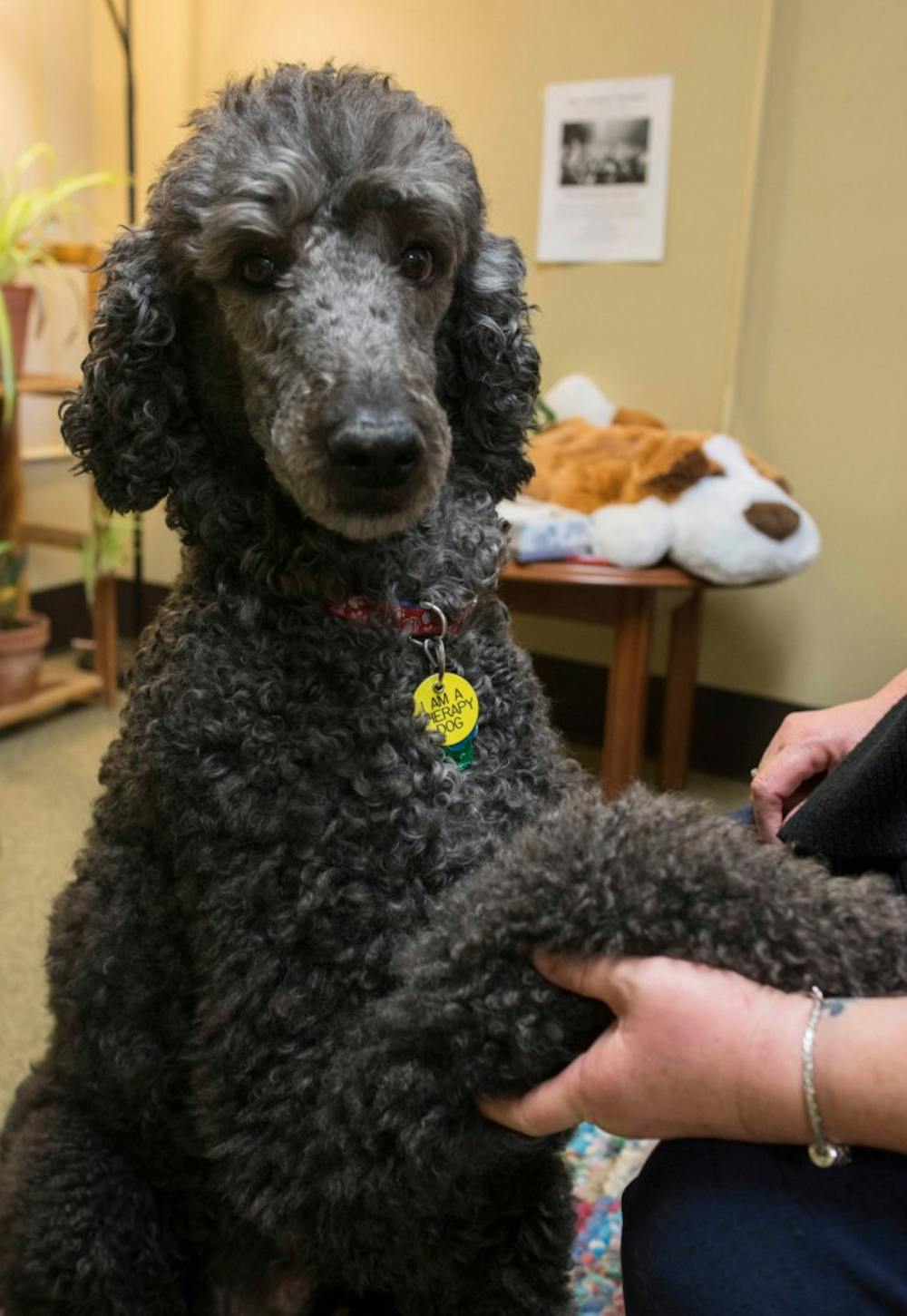OU Counseling and Psychological Services now has Buddy, a therapy dog, available for sessions.
Students who visit Rinda Gould at Ohio University Counseling and Psychological Services on Wednesdays should expect some four-legged company in their sessions.
Starting this semester, CPS offers sessions with Buddy, a certified therapy dog.
Buddy is a 6 1/2 year-old charcoal-colored standard poodle who joined the staff after his personal owner, Gould, started her position at OU in September 2014. He previously worked as a therapy dog with Gould for more than a year at Marietta College.
“There has been a lot of research done about the benefits of having dogs specifically as an emotional support dog or as a therapy animal,” Gould, a senior counselor at the center, said. “They lower blood pressure. … They lower anxiety. When clients are petting him and talking to him, they are able to let things out that can be scary. It just helps them relax.”
Gould said training a dog to become a therapy animal is all about its temperament. The dog needs to be passive and “very loving.”
Living with her youngest son who has anxiety and depression, Gould said, has made Buddy a great therapy dog.
“He wants to be with people,” she said. “He seems to know if students are upset. He’ll want to get really close to them. It’s intuitive to him. … He loves to hold hands. He loves to be petted.”
Fred Weiner, director of the CPS, said the affection society has created for animals such as dogs and cats has predisposed individuals to be more comfortable around them. This notion is amplified even more so with the way many individuals often describe dogs as “man’s best friend” that give us “unconditional love.”
“Being in the presence of an animal that we’re acculturated to experience as loving and affectionate carries over no matter where you are,” Weiner said. “Some (of) you [pn1] come to the counseling center because you’re anxious, depressed or this or that, and it feels kind of soothing to be around an animal.”
Weiner added that he’s glad Buddy is only in the office one day per week because he thinks the other staff might not otherwise have any clients due to Buddy’s popularity.
“I can see when (Buddy) is here, the staff is a little happier. They like to take a break and go in and schmooze with him,” Weiner said. “I know I do.”
Gould said some of her clients specifically schedule their appointments on Wednesday in order to see Buddy. Buddy only works in Gould’s office with her caseload.
Taylor Watford, a freshman studying psychology, lit up when she heard about Buddy. She said if she needed to, she would like to have a therapy dog involved in her session, especially because Buddy is a poodle.
“Because instead of just talking one-on-one, you have something else to distract you from the situation,” she said. “I used to have a poodle. … They’re a comforting breed.”
Because he is Gould’s dog, Buddy comes at no cost to the university. Gould and her family adopted Buddy when he was four months old in 2009. When he isn’t in the office, Gould said, Buddy is just a normal, well-trained dog.
“When you say ‘play,’ he’s on. He’s a totally different dog,” Gould said with a smile. “He loves to play fetch. You can’t say the ‘t-o-y’ word.”
@buzzlightmeryl
mg986611@ohio.edu






